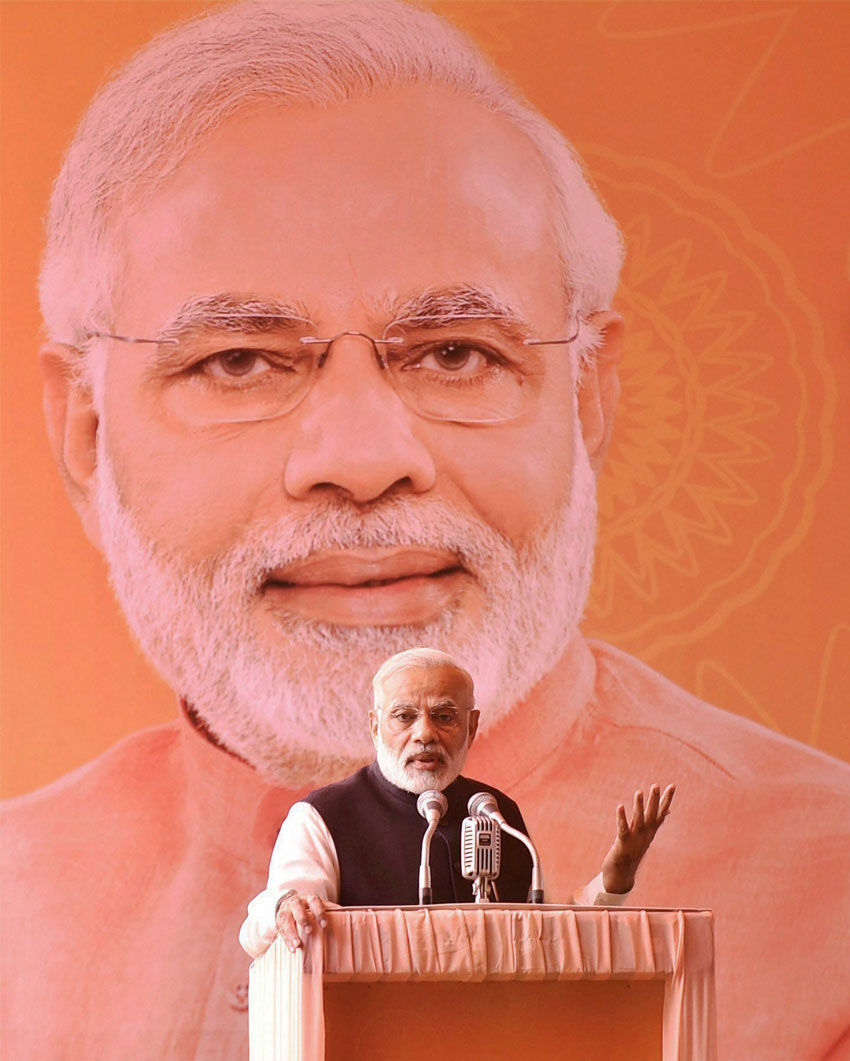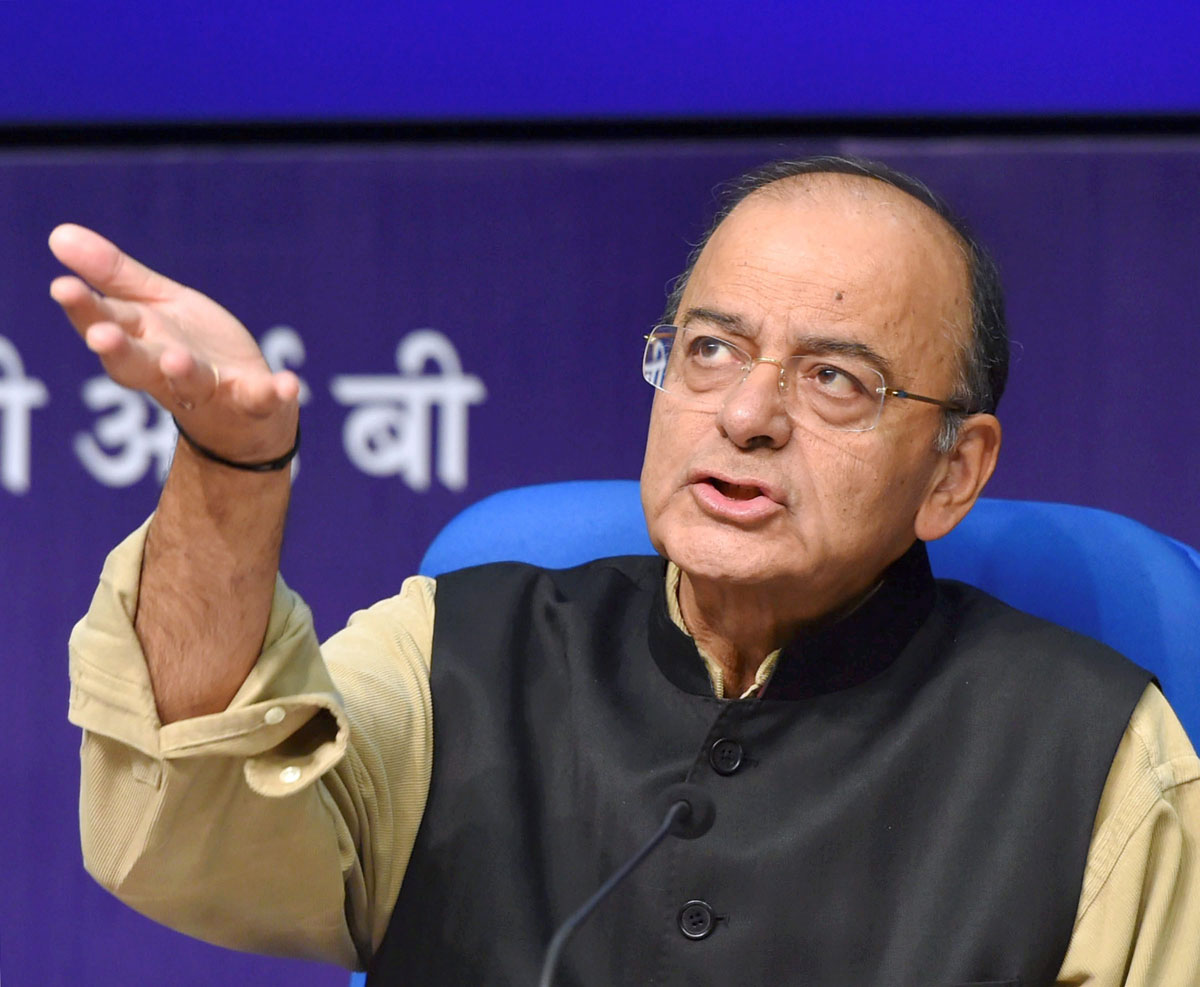Modinomics Brings a Quantum Leap
India’s Minister of Finance and Corporate Affairs Arun Jaitley addresses a press conference on ‘India’s ranking in the World Bank’s Ease of Doing Business Report 2018’ in New Delhi, Oct. 31. (Shahbaz Khan/PTI)
The World Bank’s latest study called “Ease of Doing Business 2018” has given a thumbs-up for ‘Modinomics’ by designating India at the 100th position, from 130th in 2016, in its “ease-of-doing-business” index, writes Priyanka Bhardwaj.
The news of India’s ranking had equity markets, both Nifty and Sensex, soaring fresh all-time highs in early trade, reflecting positive sentiment about India among investors.
World Bank’s Vice President South Asia, Annette Dixon confirmed, “India stands out this year as one of the 10 economies that improved the most in the areas. The lone country in South Asia and even the BRICS to do that.”
This proves a respite to a Center that has been facing brickbats from opposition for “slowing down of the economy.”
Taking it as an affirmation of its policies, Finance Minister Arun Jaitley declared at the press conference that sustained structural reforms of Prime Minister Narendra Modi-led government in the last four years, are the primary reasons for this achievement.
“For the last several years India was hovering around 130-140. In 2015, India was 142. Then the next two years the ranks were 131 and 130. In the last 3 years, the government has been making efforts to simplify procedures which led to improvements in many areas,” he stated.
On social networking sites Modi tweeted, “All-round & multi-sectoral reform push was ‘historic’ and the government is determined to further improve the rankings and scale greater economic growth with the mantra of ‘reform, perform and transform.’”
A benchmark study of regulations of 190 countries, the report ranks them on the basis of field surveys and interviews conducted on corporate lawyers and company executive.

It deals with ten sub-indices besides a whole list of datasets, and categorizes India amongst the top 10 nations to have displayed marked improvements in its economic ecosystem.
Parameters on which India made significant improvement are “protecting minority investors,” “paying taxes,” “getting credit,” “insolvency,” “measures to reduce Non-Performing Assets,” and “power supplies.”
Out of the twenty reforms carried out by eight South Asian economies last year, India pushed ahead eight of them, the largest number for any country.
Undeniably this paved the way for amelioration of investor-perception about the country’s economic system.
However, challenges remain in the areas of “starting a business,” “enforcing contracts,” “rules and regulations,” and “dealing in construction permits.”
For instance, it still takes 1,445 days to enforce contracts as against 1,420 days, 15 years earlier, when India was at the 164th spot, and to start a business it takes 30 days, as compared to 127 days about 15 years ago.
Importantly, the immensely controversial demonetization did not measure up to a comparable in this report as it was unique to India, and the indirect tax regime of Goods and Services Tax (GST) that raked up immense controversy implemented just recently could not be factored in this year’s evaluation.
Contrary to popular opinion, the government predicts a better ranking next year especially due to GST.
The World Bank report advises that to obtain further progress, India would do well to introduce in-depth evaluation for introducing fresh reforms on a yearly basis, and in this regard impetus to the Small & Medium Enterprises that would enable the absorption of the million new job seekers who enter the job market every year.
While it may be easy to be swayed by the good positioning of India in the World Bank report there are exact issues that distance the experiences of the investors from what exists in theory, thereby confounding the Indian business environment.
Critics also point out to the inherent flaw of the World Bank methodology being specific to Delhi and Mumbai only.
Additionally, on juxtaposition with other reports the perception changes dramatically.
In Transparency International’s Corruption Perceptions Index, India has a dismal rank of 79th among 131 nations, and in Heritage Foundations’ Economic Freedom index it is at 143rd.
The inaccuracies of the methodologies should however not dissuade India from wanting to improve in areas as indicated in the World Bank report.
To achieve the enviable target of breaking into the Top 30 slot in World Bank ranking by 2020 the Modi dispensation do well to concentrate on the millions of unemployed and the small entrepreneurs who struggle against enormous daily odds and hurdles, and enhance real operation of reforms, rather than fall into the political quagmire of obsessing over good rankings in various reports for electoral gains.
It is these small constituents and their gains that will make for a robust big picture, economically as well as politically.


